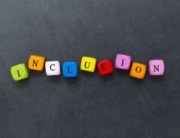While an ever-growing number of states permit the use of marijuana for medical and/or recreational reasons, the federal government, through the Controlled Substances Act, still considers marijuana to be unlawful. In fact, only four states align with federal law; all other states make marijuana usage permissible in some way. And this landscape makes my job — and that of legal, HR and compliance professionals across the US staffing industry — that much more difficult.
In fact, at the top of my wish list is comprehensive direction from the federal government that preempts conflicting state laws so that there is one rule to follow when it comes to the use of and testing for marijuana in the workplace.
President Biden in October made some promising moves in this direction, instructing his attorney general and the Health and Human Services Agency to review the classification of the drug. And that’s welcome news because the way things stand now leaves employers in a compliance minefield.
For example, ignoring a positive marijuana drug test result of an employee or job candidate risks breaching contracts with clients that require “clean” drug tests before performance of services on their behalf. Yet, dismissing an applicant due to a positive drug test result may put your firm at risk in some states.
State-fed conflict. New York law illustrates the point. In March 2021, then-Gov. Andrew Cuomo signed into law the Marijuana Regulation and Taxation Act, which makes recreational marijuana use legal in the state of New York and protects employees and job applicants from discrimination if they use marijuana outside of business hours.
How does this affect US employers? Employers often enforce zero-tolerance policies for unlawful drug use by drug-testing their workforce. If an applicant fails a drug urine test (anecdotally, the most common drug-screening test used by employers), the employer usually revokes its offer of employment. But, because a urine test detects marijuana for up to 30 days after use, the New York law undoubtedly calls into question this tried-and-true practice of preemployment drug testing. After all, a test result will tell an employer that a New Yorker used marijuana within 30 days but does not tell when it was used, e.g., a weeknight after work, a weekend, etc.
The New York law is similar to Delaware’s Medical Marijuana Law, except that the Delaware statute expressly states that “… an employer may not discriminate against [a registered qualifying patient because of a] positive drug test for marijuana components or metabolites, unless the patient used, possessed or was impaired by marijuana on the premises of the place of employment or during the hours of employment” (emphasis added). But, as mentioned above, employers cannot assume employees are currently under the influence merely because marijuana is detected in a drug test.
A quagmire. It’s a mess, right? So what are we, total talent and staffing providers, to do when a client insists on screening consultants with drug tests? Some clients may not be aware of the growing trend in legislation limiting the use of drug tests that can’t pinpoint the timing of use. A good example of this is the Mayo Clinic, which was subject to a class action lawsuit for denying employment to class members who were enrolled in Minnesota’s Medical Cannabis Registry program and tested positive for marijuana. Other clients may know full well of this quagmire but nevertheless rely on federal law while pushing risk of state litigation onto us as employers.
While the Biden administration appears to be taking positive steps, we may have to wait months or longer before actual changes are made. This is the very thing that our federal system of government is supposed to prevent. For this reason, we all should be working through our legislative and government affairs representatives to push the need for a uniform federal approach to the medical and recreational use of and testing for marijuana.







